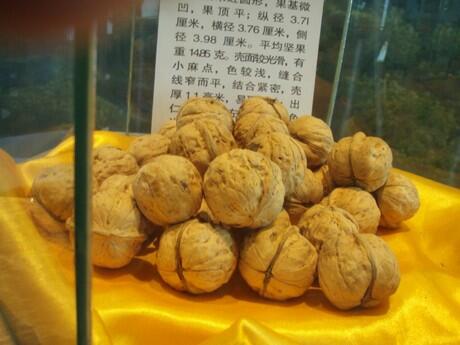Having now piled up over 50 years of experience in nuts and dried fruit, Pino Calcagni feels in a position to ask himself a few questions: He ponders why Italy has fallen behind as a producer of nuts while the rest of Europe and others around the world rise. This comes at the same time as the “Global Agri-Business” Alliance (GAA), which was founded in Singapore on 15th September. This has created an association between 36 food companies of the world, including cereals, coffee, cocoa beans and, not least, nuts and dried fruit.
During the recent forum “Building Sustainable Futures” in Singapore, the GAA has been launched by 300 company leaders from all over the world with the ambition to build a more sustainable future, bringing together agricultural operators, NGO’s, industrial cooperatives and other interested parties to discuss and face the challenge of a global sustainability based on a concept of common responsibility.
From his experience, and after being inspired by the GAA, as the head of the ‘Global Cashew Council’, (an organization founded ad hoc to ‘defend’ the cashew nut and spread its production, which today is mainly concentrated in Africa whilst also processed in India, Vietnam and Brazil), he says that through a direct collaboration between agriculture and the food industry and the application of Good Agricultural Practices, Italy can obtain an increase in production of about 25%.
Hazelnuts
Italy are supporting the development of new varieties, nearly all of them Italian in origin, to improve the current kernel yield of between 40 to 48% by a net 15%. A premium exists for special varieties of products required by the confectionary and snack industry. Ferrero, the world’s top nut user, confirms this type of initiative, having created a kind of hazelnut course and founding the specialist company ‘H.Co.’.
Well irrigated and fertilised hazelnut trees, including Organic, also guarantee in relatively poor soils a production output of 2,500 to 4,000 kg/ha of dried product. The economic return, after deduction of all costs for growing, phytosanitary treatment, pruning, irrigation (where necessary) and the activity of expert agronomists, can reach 2,000/3,000 €/ha per year. Can other agricultural productions consistently offer such value?
Walnuts
In the past Italy had Sorrento walnuts, the ecotype Malizia, the Feltrina walnuts and those from Saluzzo, and the country today produces not more than 12,000 tonnes. Many orchards are scarcely cultivated and becoming wild. It is incomprehensible that in the meantime the Italian plant nurseries have achieved a level of excellence in micro-propagation, envied by French, Chinese and North American plant experts.
Almonds and pistachios
Just a short thought about almonds and pistachios. He believes Italy needs to enhance their Mediterranean almonds with top varieties possessing high kernel yields as grown in Apulia and Sicily, and the new highly productive Spanish cultivars.
Where does Italy stand today
Well, nut production worldwide is today over 7 billion tonnes in-shell, which is equivalent to a total value of about 30 billion Euros. The contribution of Italy, assuming the production of hazelnuts, walnuts, almonds and pistachios is not more than 200,000 tonnes and therefore around 3%. This is mainly due to hazelnuts at circa. 70%. This means there is plenty of space for domestic consumption and for export.
On the other hand, Italy is one of the most advanced processing countries in the world: the famous ‘Nutella’ is above all, followed by turròn, nougat, ice cream, fine pastry, marzipan and snack products. All of these remind us that we were the ‘cradle’ of nuts. Italian nut processors, among the best performing in Europe, deliver their appreciated high quality products to over 50 destinations worldwide. And so, even if our productions are still low, Italian operators are considered to be the best nut experts with the best know-how.
Source: Fresh Plaza
By: Pino Calcagni











